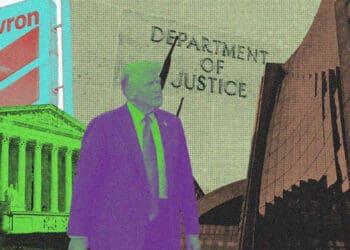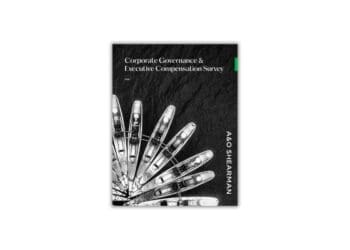The Actual and Potential Impacts of Allegations
Corporate boards may be due for a rude awakening; they’d be well-advised to assess the harm allegations of corruption and other unethical conduct can do to their company’s share price, including its market capitalization. Corporate directors and officers are under three general legal duties: the duty to act carefully, the duty to act loyally and the duty to act lawfully.
Corporate board members devote significant time to financial oversight and strategy while often neglecting steps needed to protect and promote the company’s most important intangible asset: its culture and reputation. The negative effects of mere rumors of bribery and corruption can often be as problematic as clear accusations or even convictions.
The duty of care of corporate directors and officers is a special case of the duty of care imposed throughout the law under the general heading of negligence. Laws builds on moral, policy and experiential propositions. The law of negligence is no exception. The moral proposition that underlies the law of negligence is that if a person assumes a role whose performance involves risk that affect others, this person is under a moral duty to perform that role carefully. Therefore, corporate directors and officers are under an obligation to take steps to affirmatively reduce risks, and an omission may be wrongful.
On this foundation of moral blame, the law of negligence has erected a structure of legal blame or liability. The structure of legal blame under the law of negligence generally parallels the structure of moral blame.
Because government officials are engaged by definition in governing, their decisions will often have adverse effects on other persons. When officials are threatened with personal liability for acts taken pursuant to their official duties, they may well be induced to act with an excess of caution or otherwise to skew their decisions in ways that result in less than full fidelity to the objective and independent criteria that ought to guide their conduct.
Among the justifications for holding individuals “responsible according to a standard they cannot meet” are the administrative difficulty of distinguishing between an incapacity to exercise care and a failure to exercise care, and the policy judgment that, in the end, the objective of compensating the injured is more important than the objective of running a purely fault-based system.
There are plenty of case studies that evaluate the impact of the loss of trust from key stakeholders resulting from public rumors and allegations. These stakeholders may be the general public and institutional investors, but they also include existing and potential clients. Institutional investors in particular are increasingly sensitive to compliance-related violations (or rumors thereof) by companies within their portfolio. As an example, the world’s largest pension fund (Norwegian Government Pension Fund) excluded ZTE from funding due to alleged corrupt behavior.
International authorities are beginning to establish a track record of corporate convictions and multimillion-dollar penalties. Recent and ongoing criminal prosecutions of individuals have also put executives on notice that they, too, will face the harsh consequences of violating anti-corruption laws, including the U.S. Foreign Corrupt Practices Act (FCPA) or the Canadian Corruption of Foreign Public Officials Act (CFPOA). Under Canada’s Integrity Regime, companies that do business with government also face suspension or debarment when charged or convicted under the CFPOA or similar foreign anti-corruption laws.
Internationally, recent cases have shown that enforcement agencies are going to continue to scrutinize anti-bribery and anti-corruption (ABC) compliance programs and will likely bring charges when violations are the result of willful or reckless conduct. In particular, enforcement agencies may bring charges when there is a failure to adequately ensure the existence of an effective ABC compliance program resulting in the failure to prevent violations of the law.
Therefore, board members and executives must protect their organizations and themselves by effectively implementing a robust ABC compliance program, as well as by maintaining effective detection and investigation procedures, including continuously improving the effectiveness of any existing ABC compliance program.
In conclusion, here are some useful suggestions that were shared with me by Mrs. Huguette Labelle (who has chaired the Board of Directors of Transparency International). Hopefully these will proven useful to board members and executives:
- Sustained leadership on transparency and integrity is vital.
- Strong anti-corruption measures and repeated staff training is crucial.
- The compliance office must be answering directly to the CEO and reporting regularly to the board.
- When allegations occur, move quickly with a forensic audit. If criminal issues are uncovered, turn them over to the appropriate authorities.
- Ensure that the staff remuneration is not an incentive to sell contracts at all cost.
- Make it clear in documentation that this is a “clean” company that does not bribe – this has been demonstrated to be a deterrent for bribe asking.
- Include in the external audit a review of the compliance on anti-corruption measures.
- Ensure full transparency in contract management.
- Publish who the real beneficial owners of their company and subsidiaries are.
- Beware of transfer pricing and tax evasion, since it creates impoverishment in countries where the company is working – especially in the natural resources sector and in poorer countries.



 Marc Tasse is an investigative and forensic accountant and an internationally renowned subject matter expert in the fields of anti-bribery / anti-corruption, anti-money laundering and anti-fraud. Marc examines financial crime from different angles and explores what motivates people to break the law, how wrongdoers cover their tracks and what can be done to put a stop to the looting.
An award-winning lecturer in the MBA program at the Telfer School of Management and in the Common Law Section at the University of Ottawa’s Faculty of Law, his current research focuses on the actual and potential effects of allegations of corruption and improper financial reporting on publicly traded companies’ market capitalization.
Marc is a Chartered Professional Accountant – Chartered Accountant (CPA, CA) (Canada), a Forensic Certified Public Accountant (FCPA) (USA) and a Certified Internal Controls Auditor (CICA) (USA). He carries the designation of Certified in Financial Forensics (CFF) (USA), and holds both an Honours Bachelor of Commerce and a Master’s degree in Business Administration (MBA) from the Telfer School of Management at the University of Ottawa.
Marc Tasse is an investigative and forensic accountant and an internationally renowned subject matter expert in the fields of anti-bribery / anti-corruption, anti-money laundering and anti-fraud. Marc examines financial crime from different angles and explores what motivates people to break the law, how wrongdoers cover their tracks and what can be done to put a stop to the looting.
An award-winning lecturer in the MBA program at the Telfer School of Management and in the Common Law Section at the University of Ottawa’s Faculty of Law, his current research focuses on the actual and potential effects of allegations of corruption and improper financial reporting on publicly traded companies’ market capitalization.
Marc is a Chartered Professional Accountant – Chartered Accountant (CPA, CA) (Canada), a Forensic Certified Public Accountant (FCPA) (USA) and a Certified Internal Controls Auditor (CICA) (USA). He carries the designation of Certified in Financial Forensics (CFF) (USA), and holds both an Honours Bachelor of Commerce and a Master’s degree in Business Administration (MBA) from the Telfer School of Management at the University of Ottawa.









